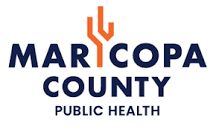Affordable, safe, and stable housing directly impacts an individual’s health and well-being and improves people’s ability to manage chronic diseases and mental conditions, access education and employment, and build healthy relationships. Persons that are homeless face illness at three to six times the rate of housed individuals and are three to four times more likely to prematurely die than the general population.
Ensuring that patients have stable housing can also reduce healthcare costs. An analysis of Oregon Medicaid claims data found people placed in stable and affordable housing reduced their overall Medicaid expenditures by 12%. Housing placement also correlated with a 20% increase in primary care visits and an 18% decrease in emergency department visitations among Oregon Medicaid members.
It’s no surprise then that hospitals and health systems are increasingly interested in supporting access to stable and quality housing as a strategy to reduce downstream healthcare spending, especially as they move toward value-based payment models.
CMS is catching on too. A couple of years ago they released a bulletin emphasizing the importance of designing Medicaid benefits packages that incorporate the social determinants of health. They outlined allowable coverage of housing-related activities and services for individuals with disabilities and older adults requiring long-term services and supports, like conducting individual tenant housing assessments, assisting with the housing search and application process, or offering tenancy sustaining services.
Last month the HHS Secretary suggested that CMS will be introducing a payment model allowing hospitals to directly pay for housing and other social services using federal Medicaid dollars. The statement suggests that this shift stems from a broader interest in better alignment between health and human services and that such a model would be tested by the Center for Medicare and Medicaid Innovation (CMMI).
While direct spending on room and board still isn’t allowed under the Medicaid statute, several state Medicaid programs are pursuing demonstration waivers that allow for innovations or flexibilities in Medicaid-managed care programs to address housing needs or other social determinants of health.
North Carolina recently received approval of its Section 1115 waiver which will allow their Medicaid managed care contractors to cover evidence-based, non-medical interventions that have a direct impact on members health outcomes and costs. The pilots will be implemented regionally to address housing, food security, transportation, employment, and interpersonal safety. I think North Carolina is the first state to receive this type of waiver, but I’m not 100% sure about that.
CMMI is also exploring the impact of screening and referrals for health-related social needs (including housing) of Medicaid and Medicare dual beneficiaries. They’ll be measuring whether screenings and referrals to community-based organizations and social services generate improvements in health outcomes and reductions in healthcare spending. The model is being piloted through 31 organizations in 23 states including at AHCCCS.

